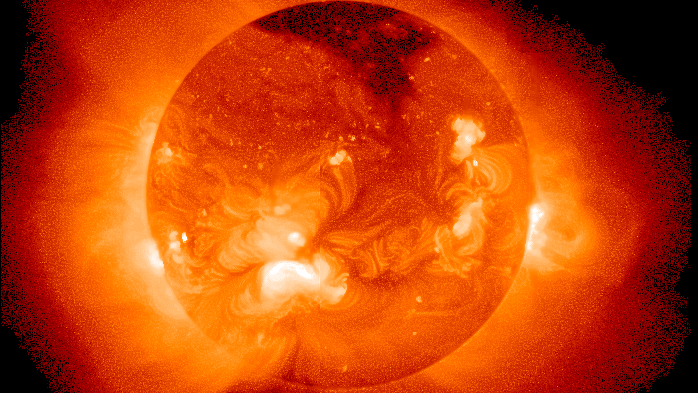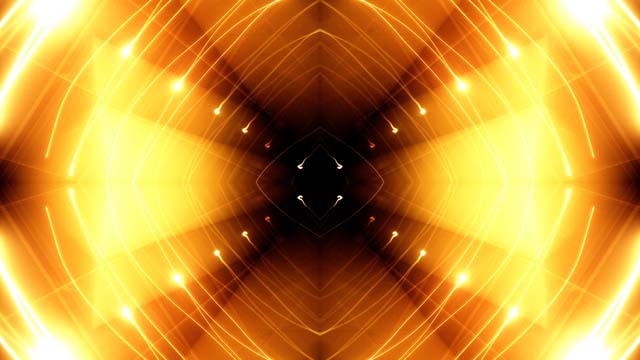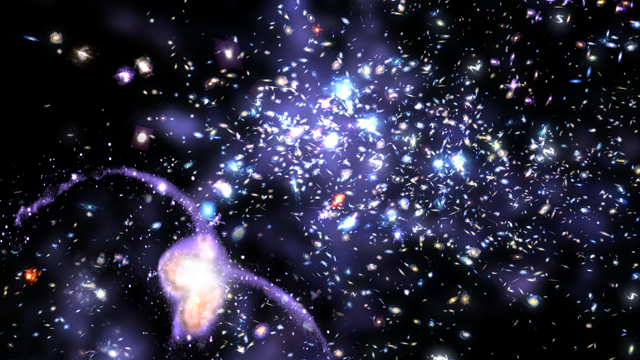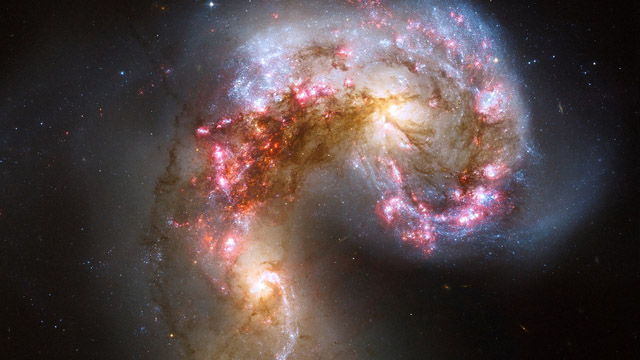Computer storage and software are already migrating to the cloud, and soon processing power will go virtual as well, making our mobile devices as powerful as supercomputers.
Search Results
You searched for: michio kaku
Predicting the end of the world is a rough business. Everyone knows when you're wrong; and when you're right, you don't get to take a victory lap.
Theoretically, there could be people and planets made out of antimatter rather than matter, but where are they?
By 2030 the physicist expects that we will have hot fusion reactors.
Every Wednesday, Michio Kaku will be answering reader questions about physics and futuristic science. Today, Dr. Kaku addresses a question posed by Tomas Aftalion: Will it be possible to transfer one’s memory into a synthetic medium in our lifetime?
What are the practical applications of cryogenics today?
The doubling of computer processing speed every 18 months, known as Moore's Law, is just one manifestation of the greater trend that all technological change occurs at an exponential rate.
1. According to our really cool BIG THINK physicist, Michio Kaku, evolution has stopped for our species. 2. But that doesn’t mean we can’t change ourselves. 3. So, in the […]
At one time, it seemed inconceivable that Detroit—the leading automotive center in the world—could ever lose its place on the world stage. But what if Silicon Valley is not ready for the Post-Silicon Era?
I wrote earlier this week about the media and its treatment of Yellowstone caldera. Well, I tried to be calm about a post/video I saw earlier today on CNN’s American […]
Are the revelations promised by string theory's quest for the "Theory of Everything" leading physics in the wrong direction?
Breaking the analog world into zeros and ones results in some loss of information, but it allows for an infinite number of exact replications.
Because of the wave nature of matter, there is a finite possibility—albeit a minuscule one—that you could go to bed on Earth and wake up the next morning on Mars.
Every Wednesday, Michio Kaku will be answering reader questions about physics and futuristic science. If you have a question for Dr. Kaku, just post it in the comments section below and […]
If we were able to move our brains, neuron-for-neuron, into a robot, would we still be the same person?
Even if science is able to teleport humans across large distances, would the teleported human really be the same person or just an exact replica? What would happen to the soul?
One day we might be able to download our consciousness into a computer chip, preserving our personalities forever—but first we will have to better understand brain architecture.
▸
2 min
—
with
Scientists always say that fusion is 20 years away, but this time the physicist says it’s for real.
Graphene is in incredibly strong, one-molecule thick layer of carbon atoms that could someday be used to create life-sustaining nanorobots.
Technology already allows for primitive versions of superhuman abilities. One day we might also have contact lenses that allow us to surf the Internet and see infrared radiation.
Today's robots are less intelligent than cockroaches, but advances in quantum computing—transferring information using atoms rather than silicon—could revolutionize the field of AI.
In 15 to 20 years, says futurist Ray Kurzweil, a biotechnology revolution will yield powerful ways for us to reprogram our genes. Our bodies will be altered on the genetic […]
The physicist explains why other universes in the mulitverse could have many more dimensions—and could comprise Einstein's "Mind of God."
How can an entire universe come out of nothing? This would seem to violate the conservation of matter and energy, but Michio Kaku explains the answer.
Could the power of gravity be harnessed as a means of nearly instantaneous communication between planets—and even galaxies?
The physicist scoffed at the idea of quantum entanglement, calling it "spooky action at a distance. And while it has in fact been proven to exist, this entanglement can’t be used to transmit any usable information.
The answer to this question is at the cutting edge of science, but one theory states that dark matter is nothing but ordinary matter in another dimension hovering right above us.
Every Wednesday, Michio Kaku will be answering reader questions about physics and futuristic science. If you have a question for Dr. Kaku, just post it in the comments section below […]
At the heart of every galaxy like our own Milky Way lies a supermassive black hole, but scientists are unsure which develops first.
Sometimes I think that people have an unhealthy obsession with Yellowstone Caldera. Sure, it is big, powerful and the stuff that disaster movies are made, but in terms of a volcanic system that poses a high threat to life/property in the U.S. on a daily basis, it is relatively low.





























